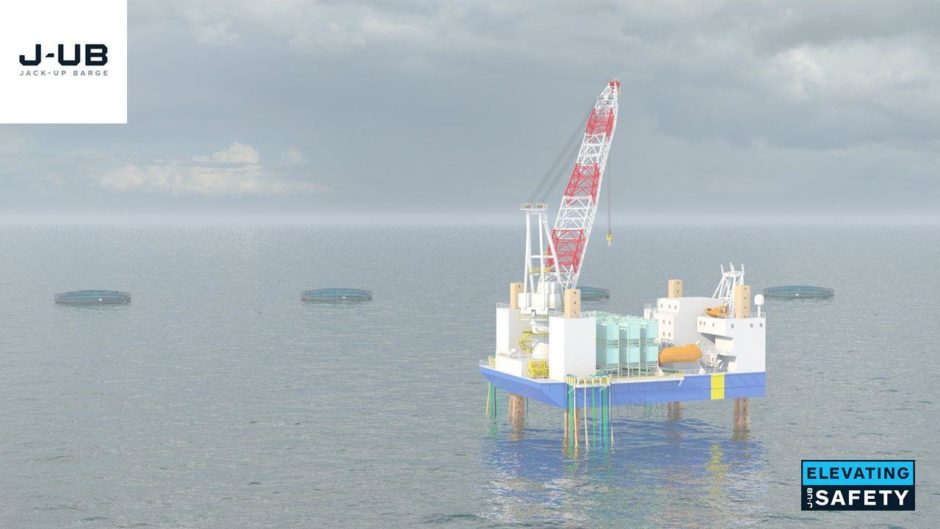
Jack-up barges currently used in oil and gas operations could soon be refitted and deployed off the coast of Scotland to service fish farms.
Dutch firm Jack-Up Barge (J-UB), alongside Norwegian aquaculture company Roxel Aqua, is exploring stationing repurposed oil rigs, equipped with feeding and harvesting facilities, in the centre of farms to create a self-sustaining system.
It’s hoped the idea, which has been called Octopus, could provide a future use for platforms as the oil and gas industry scales back in the coming decades.
By using jack-up barges, submersible cages can be placed in deeper waters with higher currents, minimising the risk of fish being impacted by lice and other infections.
J-UB said the concept also has the potential to drive down the cost of fish as the system “makes use of the environment as it is” rather than relying on large outlays.
Roxel Aqua, the driver behind the patented concept, aims to have around a dozen submersible cages containing salmon and trout arranged around the rig – they would then be managed by a small crew on the platform.
As well as Scotland, several other potential locations are being explored, including Norway, the Canary Islands and Australia, allowing different fish to be farmed.
Jurgen de Prez, commercial director at J-UB, said: “We’ve got the knowledge and the skillset to operate a jack-up offshore, even in the harshest of conditions. With a small crew and a negligible investment, we can facilitate this fish feeding process.
“Moreover, if there’s an electricity connection we don’t need to burn any hydrocarbons because we’re fully electrified and generate our own power. It’s a green way to produce food for the future.”
Sil de Rijke, tender manager at J-UB, added: “Jack-up barges are well placed for this type of work because they have the space to install all sorts of equipment needed for feeding and harvesting. The cages can also be submerged from the platform in stormy weather to protect the fish from damage.”
“The fact that it can run self-sufficiently means there’s no need for other vessels to be regularly servicing the field.”
Stavanger-headquartered Roxel Aqua was given a shot in the arm last week after Norway’s Ministry of Trade and Industry conditionally approved the concept, after initially rejecting it.
The firm now has until September to demonstrate that the idea can be operated in “exposed weather conditions”.
According to the Scottish Government, aquaculture produces Scotland’s “most valuable food export”, with Atlantic salmon farming forming the backbone of the industry.
Mr de Prez claimed the Octopus solution would deliver a more sustainable approach to fishing, adding that the economics of the concept look “very favourable”.
He added: “Here in the Netherlands, the demand for meat is dropping and people are diversifying their diets – that includes eating more fish.
“The number of people needing fed is increasing all the time so we need to find an alternative way to supply fish, rather than just emptying the seas.”
